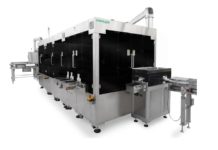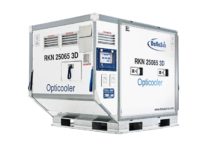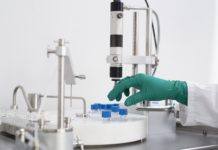For most pharmaceuticals executives, the prospect of the patent cliff is looming large in their thoughts. But an additional – and less obvious – challenge is also ready to derail future performance: that of excess inventory.
According to a recent Accenture study, the industry is currently holding as much as €35 billion in excess inventory. And Eugene Jones, leader of the supply chain practice for Accenture’s Life Sciences industry group, believes this is an area pharma firms must address if they are to successfully compete – particularly as cheaper generic drugs becoming more readily available.
“In this environment, it is no surprise that companies are hungry for opportunities to improve the efficiency of their operations, better understand their customers’ demands, and devise more creative responses to the marketplace challenges,” he says. “Supply chain analytics provide a key means to make progress in each of these areas.”
Analytics, he suggests, are of critical importance for making and sustaining both operational and strategic improvements across the functional areas of the supply chain. “There is certainly room to improve in this area, but the true value of analytics goes far beyond simple performance management: analytics offer the keys to identifying and building on competitive strengths that will become increasingly important as pharma companies are forced to operate in a less blockbuster-driven model.”
As organisational capabilities mature and data quality improves, focus will shift from using analytics to enhance the effectiveness of traditional processes to building new ways of operating. In the consumer goods industry, for instance, manufacturers are increasingly turning to point-of-sale data from their retail customers to design algorithms that allow product manufacturing and replenishment strategies to be tailored to the stages of the product lifecycle in real time.
The utility of such an approach for pharma companies facing tougher generic competition and lengthening R&D timeframes is obvious. What’s more, the industry’s current focus on improving product traceability and supply chain security will tend to build exactly the kind of links with customers and distribution partners that can provide the data to drive more analytically oriented forecasting and replenishment.
“High performers [in other industries] have a quantitative mindset, constantly using data to challenge assumptions and separate ‘what we know’ from ‘what we think we know’,” suggests Jones. “Equally important is a focus on using analytics to drive differentiation – analytics are used to seek out prospective sources of competitive advantage, rather than just measuring past performance. Finally, these companies have moved beyond internal data to draw information from the outside world where necessary. All these capabilities come together to make analytically advanced companies more customer-centric than their competitors.”
As such, even though the challenges facing the pharma industry are large, the opportunities are significant too. “Improved analytics in the areas of business simulation, network optimisation and risk modeling offer the potential for greatly enhanced synergies, and a quantum jump in supply chain capability,” concludes Jones. “The path blazed by pioneers in other industries offers pharma companies the prospect of a comparatively rapid advance toward strong analytical capabilities and the benefits that go with them.”
Streamlining the manufacturing supply chain is an issue that will be top of the agenda at the Next Generation Pharma Manufacturing Europe Summit 2011, which takes place from 7-9 June at The Fairmont Le Montreux Palace, Switzerland. This closed-door summit, hosted by GDS International, features some of the leading voices in the European pharma manufacturing sector, including John Bolla, VP of External Supply for GlaxoSmithKline; Steve Dreamer, Global Head of Engineering and Operational Excellence at Novartis; and Rolf Werner, Corporate SVP for Biopharmaceuticals at Boehringer-Inngelheim.
Along with streamlining the supply chain, other topics for discussion include trends shaping the future of pharma and pharma manufacturing, brand protection and anti-counterfeiting, packaging trends and how to nurture a culture of learning and collaboration.
Next Generation Pharma Manufacturing Europe Summit 2011 is an exclusive C-level event reserved for 100 participants that includes expert workshops, facilitated roundtables, peer-to-peer networks and co-ordinated meetings.
GDS International is a leading business-to-business events company. We offer financial, healthcare, IT service management, telecoms and oil and gas summits for senior executives throughout the Asia Pacific, Africa, China, Europe, North America and Russia markets. Our value proposition is simple: we deliver real results. And we’re very good at it. www.gdsinternational.com http://www.gdsinternational.com



























